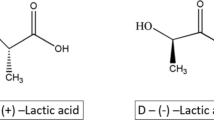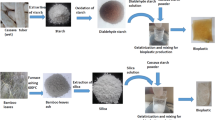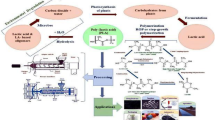Abstract
Several methods have been used to reduce problems caused by wax precipitation during the production and/or transportation of waxy crude oil. Polymers are used to improve pour point and rheological behavior of waxy crude oils. In this work, the influence of the polymer inhibitors such as methacrylate polymers, as wax inhibitor, with different range of molecular weight and alkyl side chain carbons on the rheological behavior and pour point of two Iranian waxy crude oils were evaluated. Two Iranian waxy crude oils were selected on the basis of wax and asphaltene contents. The rheological behavior of these crude oils in absence and in presence of methacrylate polymer was studied. The rheological data cover the temperature range of–1 to 12°C. The results indicated that the performance of methacrylate polymer was dependent on the molecular weight, alkyl side chain carbons and the asphaltene content of crude oil. Methacrylate polymers with longer alkyl side chains than 18 carbons would perform best as wax inhibitors in two cases. Also, for crude oil with low asphaltene, higher molecular weight methacrylate polymer is the best flow improver and lower molecular weight methacrylate polymer showed good efficiency for crude oil with high asphaltene content.
Similar content being viewed by others
References
K. S. Pedersen and H. P. Ronningsen, Energy Fuels 17, 321 (2003).
D. Chanda, A. Sarmah, A. Borthakur, K. V. Rao, B. Subrahmanyam, and H. C. Das, Fuel 77, 1163 (1998).
D. Chanda, A. Sarmah, A. Borthakur, K. V. Rao, B. Subrahmanyam, and H. C. Das, Energy Fuels 10, 844 (1996).
A. A. Hafiz and T. T. Khidr, J. Pet. Sci. Eng. 56, 296 (2007).
I. Suryanarayana, K. Venkateswara Rao, S. Ranjan Duttachaudhury, B. Subrahmanyam, and B. Kumar Saikia, Fuel 69, 1546 (1990).
L. C. Machado Andre, E. F. Lucas, and G. Gonzaleze, J. Pet. Sci. Eng. 32, 159 (2001).
J. Zhang, Ch. Wu, W. Li, Y. Wang, and H. Cao, Fuel 83, 315 (2004).
J. W. Qian, G. R. Qi, D. L. Han, and S. L. Yang, Fuel. 75, 161 (1996).
T. Kumar Naiya, R. Kumar, S. Mohapatra, and A. Mandal, J. Petrol. Sci. Res. (JPSR) 3, 90 (2014).
F. Yang, Y. Zhao, J. Sjöblom, C. Li, and K. G. Paso, J. Disper. Sci. Technol. 36, 213 (2015).
B. Wei, J. Petrol. Explor. Prod. Technol. doi 10.1007/s13202-014-0146-6
T. Liu, L. Fang, X. Liu, and X. Zhang, Fuel 143, 448 (2015).
Y. Zhao, K. Paso, X. Zhang, and J. Sjöblom, RSC Adv. 4, 6463 (2014).
A. M. Al-sabagh, F. Abdel-Hai, A. M. M. Abd El Rhman, M. EL-Shafie, and M. M. Mohammedy, Life Sci. J. 11, 731 (2014).
R. A. El-Ghazawy, A. M. Atta, and K. I. Kabel, J. Petrol. Sci. Eng. 122, 411 (2014).
Y. Wang, X. Liang, G. Shu, X. Wang, X. Sun, and C. Liu, Appl. Energy 130, 33 (2014).
M. S. El-Mahllawy, A. M. Sharara, M. M. Hassaan, and A. M. Abdel Haleem, EGYJP 22, 395 (2013).
M. Al-Sabagh, M. R. Noor El-Din, R. E. Morsi, and M. Z. Elsabee, J. Petrol. Sci. Eng. 65, 139 (2009).
S. Yi and J. Zhang, Energy Fuels 25, 1686 (2011).
L. V. Castro, E. A. Flores, and F. Vazquez, Energy Fuels 25, 539 (2011).
L. Alberto Alcazar-Vara and E. Buenrostro-Gonzalez, Fuel Process. Technol. 92, 2366 (2011).
T. Jafari Behbahani, A. Shahrabadi, C. Ghotbi, and V. Taghikhani, Fluid Phase Equilib. 375, 236 (2014).
T. Jafari Behbahani, C. Ghotbi, V. Taghikhani, and A. Shahrabadi, Presented at The 9th European Formation Damage Conf., Noordwijk, The Netherlands, 2011.
T. Jafari Behbahani, C. Ghotbi, V. Taghikhani, and A. Shahrabadi, Sci. Iran. C 18 (6), 384 (2011).
T. Jafari Behbahani, C. Ghotbi, V. Taghikhani, and A. Shahrabadi, Energy Fuels 26, 5080 (2012).
T. Jafari Behbahani, C. Ghotbi, V. Taghikhani, and A. Shahrabadi, Energy Fuels 27, 622 (2013).
T. Jafari Behbahani, C. Ghotbi, V. Taghikhani, and A. Shahrabadi, Oil Gas Sci. Technol.: Rev. IFp 70 (6), 1051 (2015).
T. Jafari Behbahani, C. Ghotbi, V. Taghikhani, and A. Shahrabadi, Fluid Phase Equilib. 358, 212 (2013).
T. Jafari Behbahani, A. Dahaghin, and Z. Jafari Behbahani, Energy Sources, Part A: Recovery, Utilization, and Environmental Effects 36, 1256 (2014).
T. Jafari Behbahani, R. Golpasha, H. Akbarnia, and A. Dahaghin, Fuel Process. Technol. 89, 973 (2008).
T. Jafari Behbahani, A. Dahaghin, and K. Kashefi, Petrol. Sci. Technol. 29, 933 (2011).
H. R. Jafari Ansaroudi, M. Vafaie-Sefti, Sh. Massoudi, T. Jafari Behbahani, and H. Jafari, Petrol. Sci. Technol. 31, 643 (2013).
T. Jafari Behbahani, C. Ghotbi, V. Taghikhani, and A. Shahrabadi, Fuel 133, 63 (2014).
T. Jafari Behbahani, A. A. Miran Beigi, Z. Taheri, and B. Ghanbari, J. Mol. Liq. 211, 308 (2015).
Annual Book of ASTM Standard, Petroleum Products Lubricant and Fossil Fuels, ASTM: Philadelphia, Section 5, American Society for Testing and Materials: Standard Test Method for Pour Point of Petroleum Oils, Designation: D97 Easton MD, 2005.
Author information
Authors and Affiliations
Corresponding author
Additional information
The article is published in the original.
Published in Russian in Neftekhimiya, 2017, Vol. 57, No. 5, pp. 551–557.
Rights and permissions
About this article
Cite this article
Jafari Behbahani, T., Miranbeigi, A.A. & Sharifi, K. A new experimental investigation on upgrading of waxy crude oils by methacrylate polymers. Pet. Chem. 57, 874–880 (2017). https://doi.org/10.1134/S0965544117100036
Received:
Published:
Issue Date:
DOI: https://doi.org/10.1134/S0965544117100036




